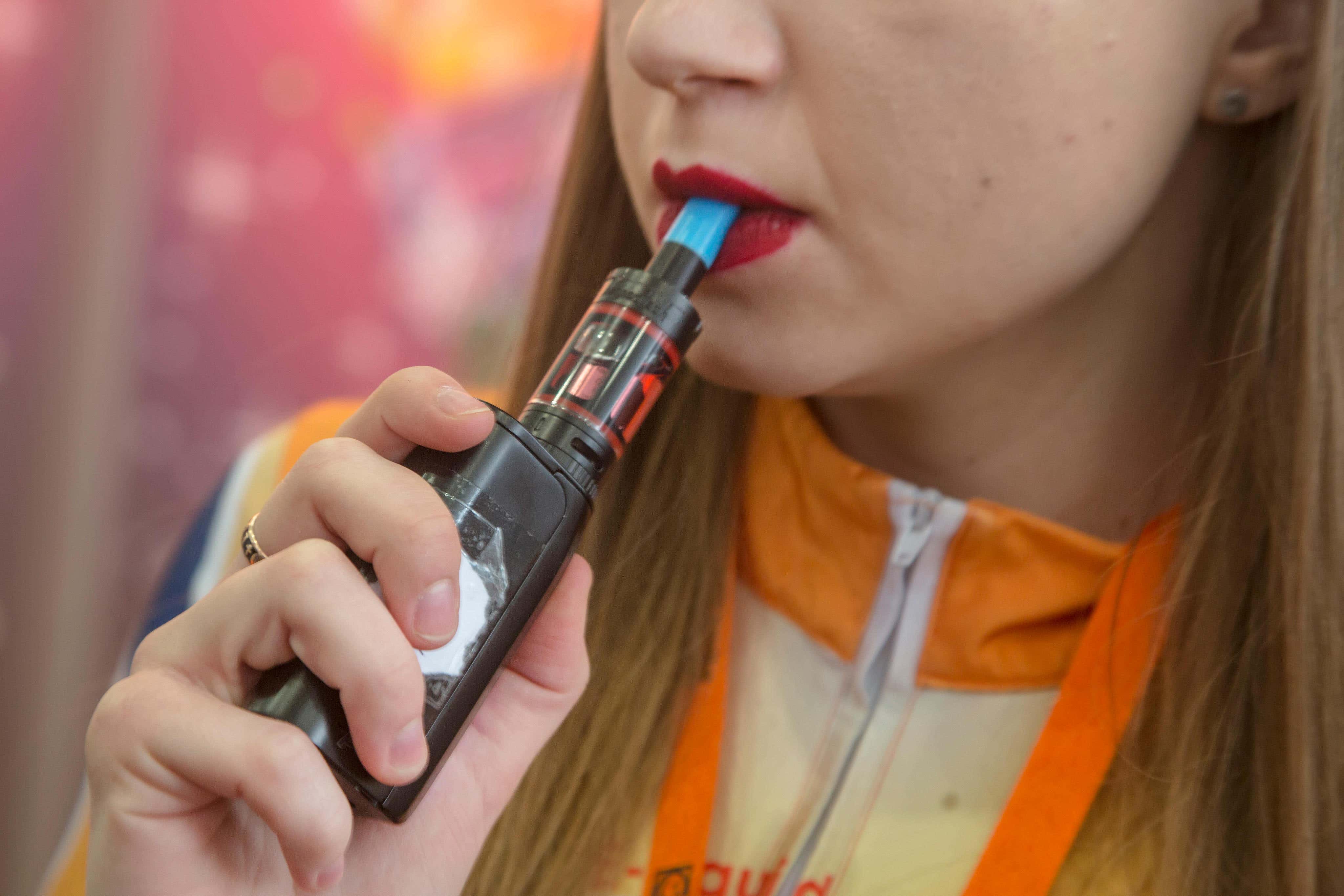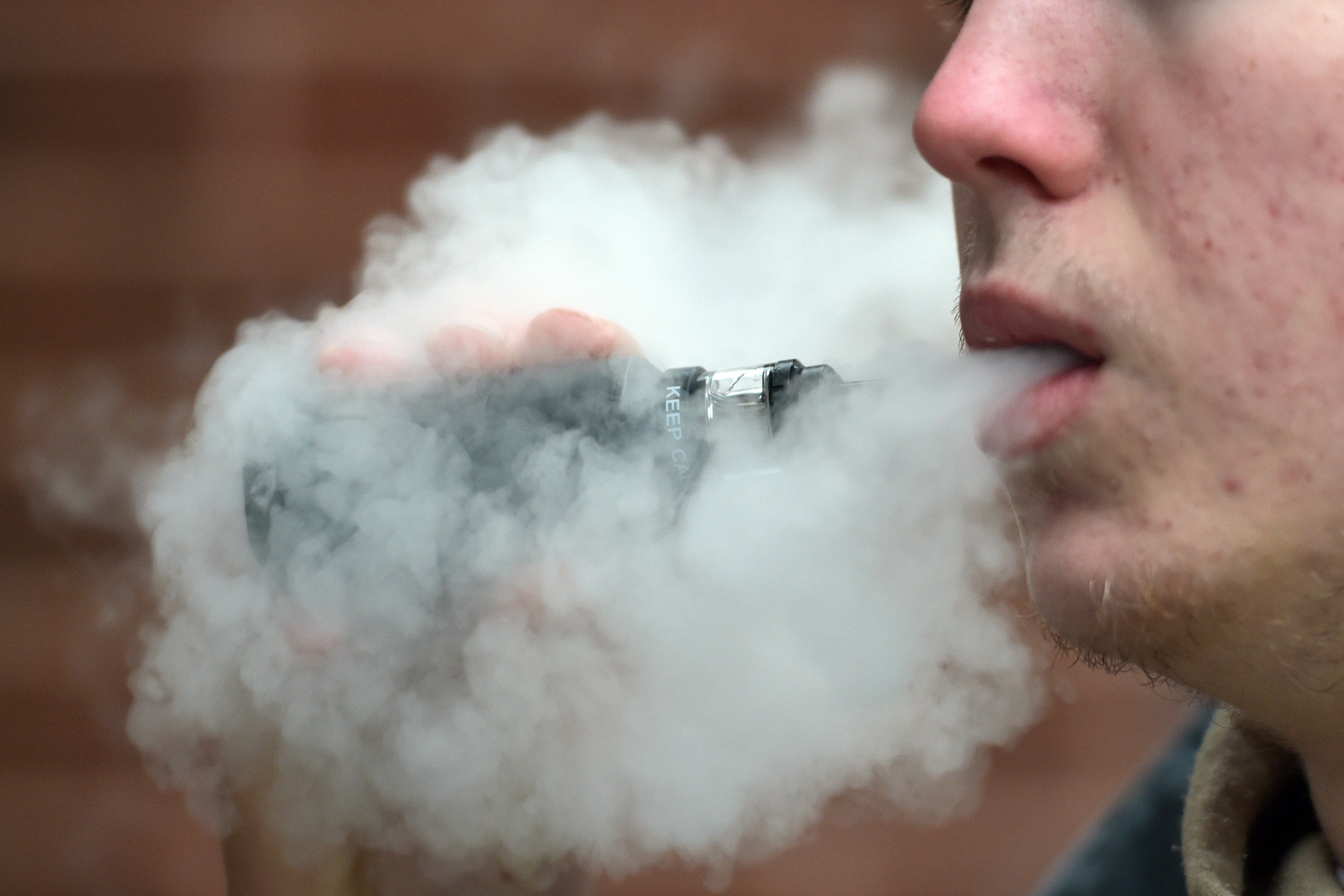Users are opting for vapes at the top end of the legal nicotine limit
People were asked about whether or not their e-cigarettes contain nicotine and the strength

Your support helps us to tell the story
From reproductive rights to climate change to Big Tech, The Independent is on the ground when the story is developing. Whether it's investigating the financials of Elon Musk's pro-Trump PAC or producing our latest documentary, 'The A Word', which shines a light on the American women fighting for reproductive rights, we know how important it is to parse out the facts from the messaging.
At such a critical moment in US history, we need reporters on the ground. Your donation allows us to keep sending journalists to speak to both sides of the story.
The Independent is trusted by Americans across the entire political spectrum. And unlike many other quality news outlets, we choose not to lock Americans out of our reporting and analysis with paywalls. We believe quality journalism should be available to everyone, paid for by those who can afford it.
Your support makes all the difference.Vapers are opting for more high-strength vapes, research has found.
A significant proportion of vapers are opting for the highest-strength vapes that they can legally get, academics from University College London (UCL) said.
Researchers examined data on almost 8,000 vapers from July 2016 to January 2024.
People were asked about whether or not their e-cigarettes contain nicotine and the strength.
The proportion of vapers in England using high-strength vapes rose from 3.8% on average between July 2016 and June 2021 to 33% in January 2024, according to the study, published in the journal Addiction.
Among the vapers using the highest-strength vapes, the vast majority (93%) used e-cigarettes containing nicotine at the top end of the legal limit – 20mg/ml.
The rise was “most pronounced” among those using disposable vapes and young adults aged 18-24.
Large rises were also seen among current smokers and recent ex-smokers, but not long-term ex-smokers.
Researchers said that the rise in higher-strength vapes coincides with the growing popularity of disposable vapes.
Despite the increase, the researchers cautioned against taxing vaping products according to nicotine strength, as there could be “unintended consequences”.

Earlier this year the Government announced that it was to introduce a new tax on vapes in a bid to discourage non-smokers from taking up the habit.
Academics warned that a duty on higher-strength vapes could discourage smokers from trying to quit with e-cigarettes or prompt them to use lower-strength e-liquids, which could “undermine quitting and perpetuate smoking”.
But they did point out that the proposed vaping products duty may also prevent younger vapers from increasing from experimentation to regular use.
Lead author Dr Sarah Jackson, from the UCL Institute of Epidemiology and Health Care, said: “Our study shows a sharp increase in the use of high-strength nicotine e-liquids in England since 2021.
“Nicotine may be addictive but it is not what causes the great majority of harms from smoking.
“For smokers trying to quit, vaping with higher-strength nicotine is likely to be more effective, as it satisfies cravings more quickly and provides better relief from withdrawal symptoms.
“Taxing higher-strength nicotine products at higher rates will make the most effective way to quit less affordable, which may drive vapers towards lower-strength e-liquids and potentially undermine smoking cessation attempts.
“Of smokers who had quit within the last year and were vaping, we found that around 40% reported using those products which would attract the highest proposed tax rate.”
Senior author Dr Sharon Cox, from the UCL Institute of Epidemiology and Health Care, said: “Taxing products according to nicotine strength may also result in people using a lower, cheaper strength and vaping more, as a person with nicotine dependence will alter their behaviour to get the required nicotine dose in their system.
“It therefore may increase the amount of liquid used and vapers’ exposure to potential toxicants.”
Deborah Arnott, chief executive of Action on Smoking and Health (Ash) and a co-author of the study, said: “Curbing underage vaping can best be achieved by making all vapes less appealing and increasing the price at point of sale, whatever their nicotine content.
“Those are the policies which will be most effective in stopping children from starting to vape in the first place.
“However, if we are to also ensure that vapes remain an effective quitting tool for adults, smokers should not be discouraged from using higher nicotine content vapes, which are likely to be more effective quitting aids.”
Join our commenting forum
Join thought-provoking conversations, follow other Independent readers and see their replies
Comments